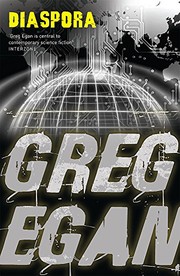Now We Try It My Way reviewed Diaspora by Greg Egan
Very creative hard scifi
4 stars
A good but demanding read with great concepts for science fiction, but at times it does feel like the author tied several great short stories into one trench coat novel. Mind you, that's not a bad thing, just something to consider.
The first chapter can be seen as its own small and can be read on the authors blog, which i highly recommend! It sets the tone of the story pretty well by introducing a level of "techno-babble" that will be present at other parts of the book. You have the choice to read it and attempt to fully comprehend it or skim through it with the necessary understanding to catch the intent. If you want to understand the techno-babble or broaden your understanding, the author even supplies visual guides and very short explanations on his website, easily findable from the link for the first chapter. www.gregegan.net/DIASPORA/01/Orphanogenesis.html
A good but demanding read with great concepts for science fiction, but at times it does feel like the author tied several great short stories into one trench coat novel. Mind you, that's not a bad thing, just something to consider.
The first chapter can be seen as its own small and can be read on the authors blog, which i highly recommend! It sets the tone of the story pretty well by introducing a level of "techno-babble" that will be present at other parts of the book. You have the choice to read it and attempt to fully comprehend it or skim through it with the necessary understanding to catch the intent. If you want to understand the techno-babble or broaden your understanding, the author even supplies visual guides and very short explanations on his website, easily findable from the link for the first chapter. www.gregegan.net/DIASPORA/01/Orphanogenesis.html



